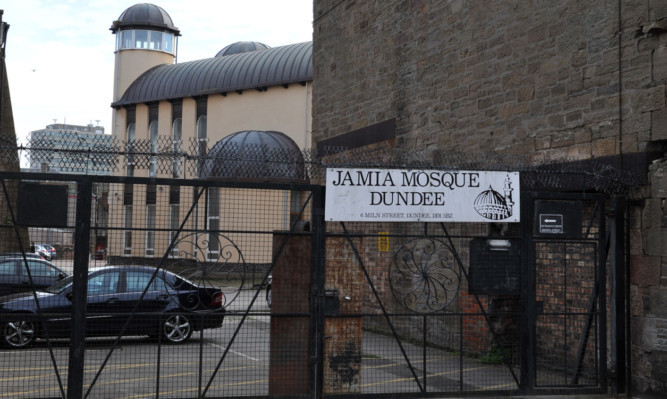A Muslim road gritter claimed he was discriminated against for being investigated over the clearing of a Dundee mosque car park during the winter of 2010 when public streets were still snowbound.
Maqbool Ahmed, 31, who resigned over that and six other incidents, has lost his claim for constructive unfair dismissal against Tayside Contracts. He said he was considering an appeal.
Mr Ahmed claimed at an employment tribunal in Dundee that the seven episodes between January and September 2011 were examples of direct race discrimination or direct race discrimination on grounds of religion or belief.
The tribunal heard that during the winter 2010, the snowfall was so heavy that Tayside Contracts’ gritter lorries were struggling to keep the streets clear.
About November 30 one of their lorries cleared the car park of the mosque in Brown Street, which is private property and not an area Tayside Contracts is contractually required to clear.
A complaint was received, but because of the pressure of work Tayside Contracts did not investigate it for another six weeks.
Mr Ahmed was spoken to and at first denied he had been in Brown Street that day, but GPS records showed his lorry had been in the area.
He then said he had been to the Halal butchers in Brown Street to pick up an order for his mother who had not be been able to get out because the buses were cancelled.
He admitted he had not asked permission to leave his route and had not marked the lost time on his timesheet.
He was suspended, but later returned to work after two other employees were found to have been responsible for gritting the mosque car park.
They had done so because cars were unable to get into it and had been abandoned on the road where they were causing traffic problems.
Mr Ahmed’s two complaints about the mosque case were that he was wrongly accused of doing the gritting and he received a warning for being off route, although other drivers who were also off route were not disciplined.
The tribunal chaired by judge Mary Kearns ruled Tayside Contracts had reasonable and proper cause for their investigation and did not accept that Mr Ahmed had been accused.
It was reasonable for him to have been suspended as he was initially not frank with his employers about what happened, and it was reasonable for him to have been warned about straying off route.
Mr Ahmed’s complaint about being refused overtime was ruled not sufficiently serious and his complaint that he had been subject to rude and demeaning behaviour was not found to have been established.
His complaint that he was told to come off a tractor unit because he did not have enough experience was not considered likely to destroy trust and confidence in him.
An incident over the wearing of personal protective equipment was not a breach of contract, and his final complaint over his unsuccessful application for a job as gully driver was also rejected.
None of the alleged acts constituted a breach, the tribunal said, and the constructive dismissal claim could not succeed.
